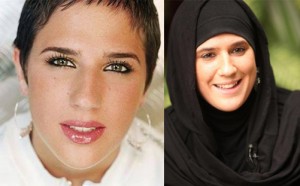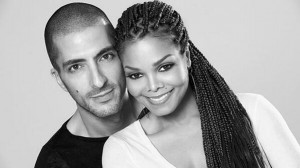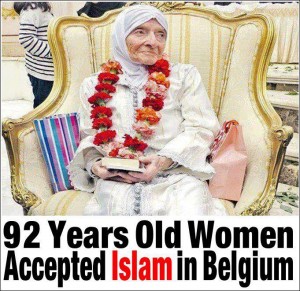Growing up in Mexico, I had a very rudimentary understanding of religion and religious diversity. While the national census showed that about 80% of Mexicans practiced Catholicism, I was raised an atheist. My parents, born Catholics, had left religion during their teenage years for various reasons. My paternal grandfather (who was never really religious either) still likes to tell his story: His grandmother had a painting of Virgin Mary in the living room and would tell my grandpa to say a small prayer in front of it before leaving the house. My grandpa would do this daily because he had been taught that failing to follow the ritual would provoke bad things to happen to him. One day he left the house without saying the small prayer, and while he was truly scared of the consequences, he noticed nothing happened to him. No bad things, no consequences. My grandpa quotes this day as the day he stopped believing in God.
People change their religious beliefs and opinions on religion on a daily basis based on personal experiences. Upon being exposed to the religious question, I felt that it was my time to explore my relationship with the divine. The process was not straightforward, and it was deeply personal. I did not tell anyone except two friends who were present when I did my shahada, and it is something that, four years later, I still consider a very personal matter.
Before converting to Islam, I happened to stumble upon negative ideas of conversion. The first of them came from Asra Nomani, who I interviewed in 2009 for an academic paper. In a very honest and open interview about Islamic feminism and the inclusion of women in religious spaces, she asked me if I had considered conversion. When I said “yes,” her recommendation was against it. She seemed to think that I had more potential as a non-Muslim woman to develop outside the realms of organized religion. However she saw herself in the role of a “Citizen of the World,” which prevented her, in her view, from leaving Islam instead of reforming it. This interesting comment was central to the interview and the section I wrote about her work.
Nomani was not alone. In my third year of university, I was lucky enough to be a student of Dr. Ibrahim Abu-Rabi, a well-known scholar of Islamic Studies and Middle Eastern politics. Whereas Abu-Rabi was all for interfaith dialogue, he was not a supporter of religious conversion to Islam. In a public lecture, he made the point that Muslims could barely provide for themselves as a community and, therefore, they should seek to provide for themselves before recruiting and converts.
Even though I did not understand these opinions at the beginning, after a few years of being a convert I acknowledge the challenges of conversion, not only to Islam, and I am often annoyed by the ideas surrounding conversion.

Converts to Islam are often highly regarded in many communities and questioned by non-Muslims for their choices. But when do converts become a matter of news? Just this week, an event honouring converts to Islam in Saudi Arabia was featured in Arab News. Coverage of these types of events always make me cringe because, in my experience, they turn out to be a “tell-all” about conversion limited to how wonderful the journey is. Often, the more dramatic the story, the more welcome it is. And whereas I think that it is important to create spaces for converts to tell their stories and be part of Muslim communities, there are things lacking in our analysis of the conversion experience.
One of them is the fact that, although many Muslims rejoice about having a large number of women converting to Islam, we barely explore the experience of ex-Muslims. Leaving a Muslim community in many cases is a source of shame, trouble and contention, and just saying that someone has left Islam is a matter of news! In a recent article shared by Anneke in our Friday Links a Malaysian Muslim woman living in the USA denied she converted to Christianity. The source of conflict was an article that went viral in social media circles and that is said to have caused many problems for the woman in question.

These articles, along with popular speculations about famous people’s secret Muslimness (i.e. Prince Charles, Madonna and Playboy models accepting Islam on Youtube), make me wonder, why are people’s religious choices so important that they need to circulate in the news? What do they give us as Muslim communities?
I have heard several times that the convert experience really inspires other Muslims… I do not feel that way, but I can definitely see the appeal. However, I think that along with having all those wonderful stories shared in public spaces, Muslim communities should take a look at the conversion experience and acknowledge the problems with how it is often represented, including questions regarding those who leave Islam and how we deal with “apostasy.”

In my personal view, conversion stories are nothing that should be in the news. Changing religion is a very personal thing, and changing beliefs and switching identity hats is not uncommon. Even though we like to think that spreading stories about celebrities or racialized women (i.e. Latin American, Chinese or Indigenous women) becoming Muslim is some kind of public acknowledgement of our religion, it barely constitutes news. Likewise, some Muslims also leave Islam. And even though we rarely see it, as Muslims we make (or should be making) a conscious choice every day to remain within the religion. Are these stories worthy of a news article?
Similarly, the stories of those leaving Islam should find wider spaces and audiences, not restricted to anti-Muslim circles or news articles that promote Islamophobia. Instead, there is a need for spaces which endorse experience-sharing and dialogue between converts to Islam, born-Muslims and ex-Muslims. Everyone’s imput is important to understand how we can better serve the needs our communities and how to support new members and the place for this dialogue can’t simply be in and through the media. Conversion stories belong to the people who experience them and their communities, and they should be a source of dialogue among individuals, their families and communities… not news on the internet.












